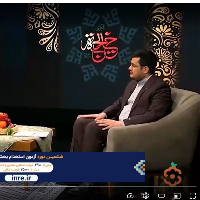Methods of Medical Education, Transoxianian Physicians in the Samanid period (874-1004 AD)
One of the educational practices in medical knowledge, Clinical and hospital methods, is Dar al-Hekmeh and Self-reading Style. This method has a fascinating history; in fact, its formation was due to the religious restrictions of scholars of Hanafi jurisprudence in schools and mosques In Transoxiana region during the Samanids (874-1004 CE).
Scrutinizing works which concern Iran civilization including primary written resources as well as newly conducted studies, not only did the present research attempt to investigate this important historical era but it also aimed to present the general scheme of medical education in the way of self-reading of during the Samanids through categorizing the garnered information.
Contrary to the notion that the creation of this constraint caused scientific stagnation, by examining and summarizing the existing material, but this limitation has deepened the medical knowledge. Even this has led to the development of equipped libraries and the access of scholars of science and doctors to these libraries, and this ultimately led to the study and research many books and writing useful books on medicine and pharmacy.
A fleeting glimpse at medical education or other various methods existing in the era of Islamic Civilization reveals the importance this teaching procedure assumed in during the Samanids, whose considerable attention to the subject of medical education for Clinical and hospital methods, Dar al-Hekmeh and Self-reading Style expanded its influence in other parts of the world, thereby fundamentally evolving methods and mechanisms employed in history of the world so as to teach medical sciences.
-
Typhus Disease in the State of Azerbaijan During the Qajar Period (1796-1925)
, Ghobad Mansourbakht *, Mohammadmahdi Parvizi
Sadra Medical Sciences Journal, -
Dr. Soghra Azarmi (1914-1973); the First Female Pathologist in Iran
Reza Karami, *
Journal of Research on History of Medicine, Feb 2024


